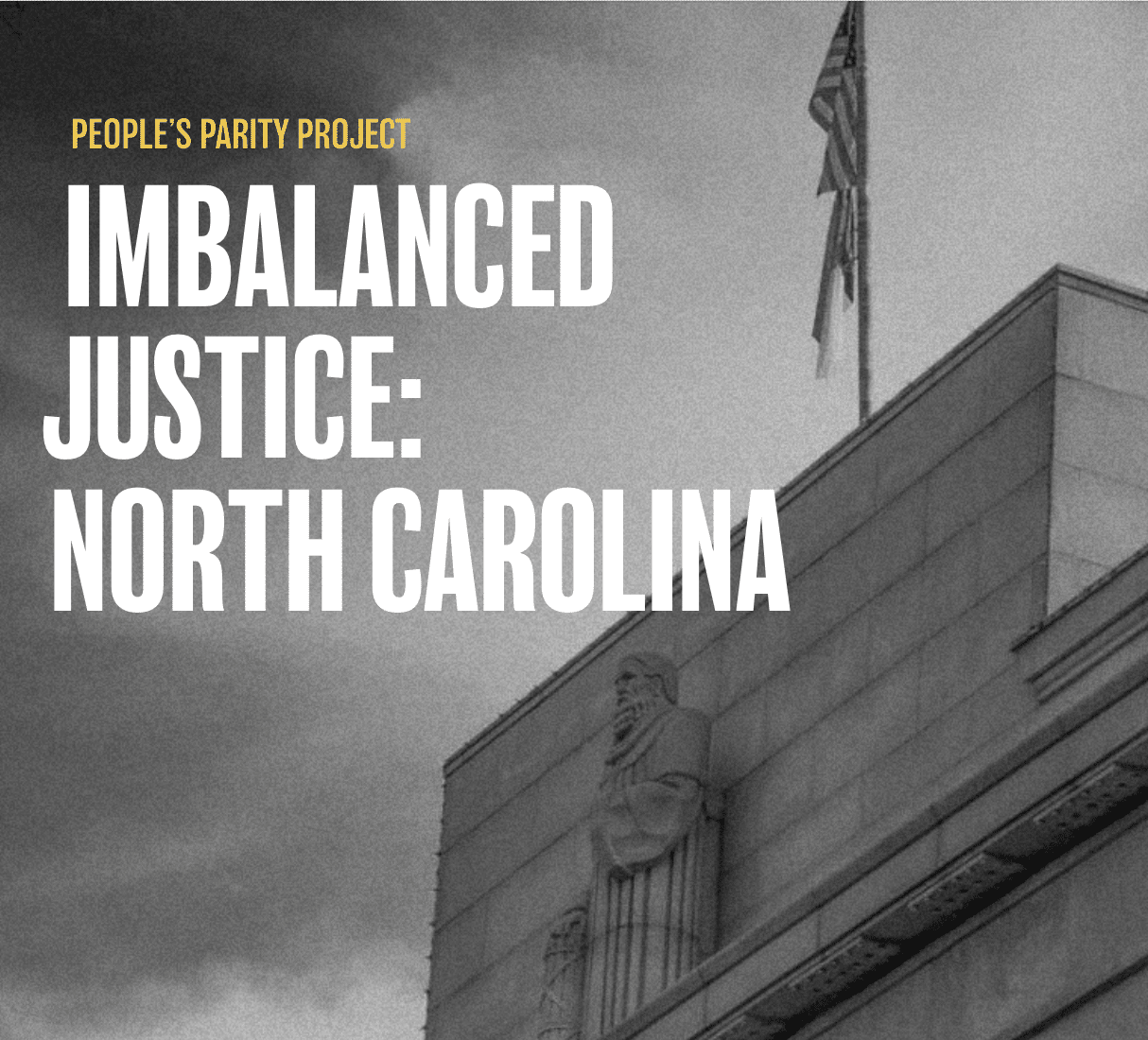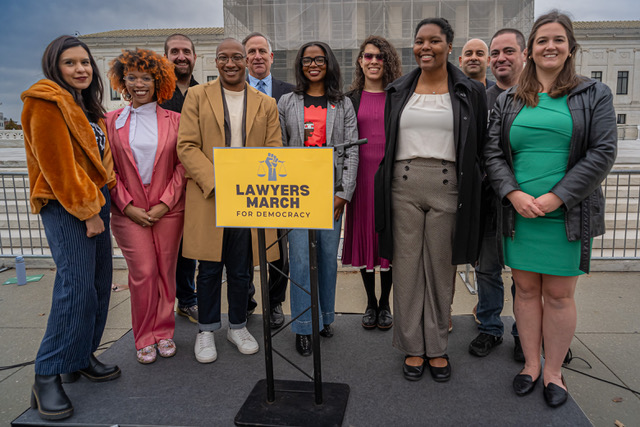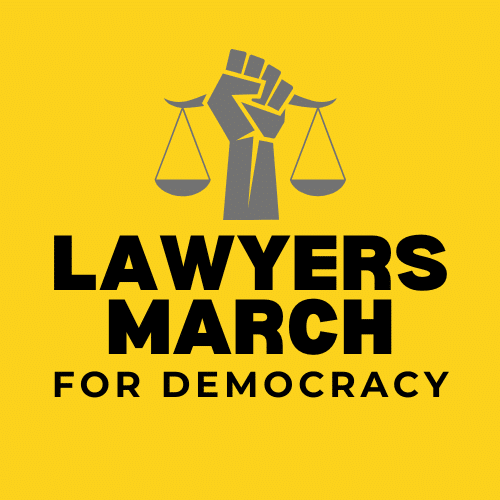Report: Imbalanced Justice in North Carolina’s Judiciary

FOR IMMEDIATE RELEASE: October 1, 2025
New Report Reveals Corporate and Prosecutorial Backgrounds Vastly Outweigh Judges with Civil Rights and Public Defense Experience
Access the report here
North Carolina: In a new report, “Imbalanced Justice: North Carolina,” by Faith Allen, a State Courts Fellow with the People’s Parity Project and student from North Carolina Central University, a comprehensive analysis of the professional backgrounds of North Carolina’s appellate and superior court judges reveals a concerning lack of representation of those who served marginalized individuals and communities versus those representing a corporate or prosecutorial background. “As a law student, I have learned how important judges are in the ability for people to access justice. This prompted my interest in understanding more about the backgrounds of judges elected to the bench in my state. Their backgrounds have the potential to influence fair outcomes for future clients, and directly impact the lives of people who need the justice system to be fair and impartial,” said Faith Allen, report author.
Key findings of the report include:
Superior Courts:
- Only 16% have backgrounds as public defenders.
- A mere 2% have legal aid experience.
- Around 46% of judges are former prosecutors.
- 100% of the state’s business court judges have worked on behalf of corporations.
- Nearly 9% worked in corporate defense—three times the number with experience in civil rights or plaintiffs’ litigation (3% each).
Appellate Courts:
- Only 5% come from legal aid backgrounds.
- Just 10% have civil rights experience.
- One-third (33%) are former prosecutors, and another third have worked in corporate defense.
“With 95% of legal cases filed in state courts, the findings of this report raise urgent questions about the impact pro-corporate judges can have on nearly every aspect of our lives, from voting rights to child custody determinations. A growing body of research has demonstrated that judges with public defense backgrounds are less likely to issue punitive sentences; conversely, former prosecutors and corporate lawyers were more likely to rule for corporations over workers in employment cases. It is time the public re-examine the backgrounds of who makes it to the bench, especially when the stakes for our democracy couldn´t be higher,” said Molly Coleman, Executive Director of People’s Parity Project.
In 2011, Republicans gained control of the General Assembly for the first time in more than a century. One of their consultants laid out a plan for the Republicans to control state government “for 114 years,” and the key was controlling the courts. The consultant recommended a series of changes to help the GOP win elections. The legislature made judicial elections partisan and reversed earlier public financing reforms that kept judges from relying on wealthy lawyers and corporations to fund their campaigns. The GOP undermined judicial ethics enforcement to allow more politics and more fundraising. And Republicans have since secured the majority of appellate and Supreme Court seats.
The impact of all this politicization reached its climax in 2024, when Judge Jefferson Griffin (R) attempted to overturn the election results after losing to Justice Allison Riggs, (D) a former civil rights attorney, by just 734 votes, and in the process, attempted to invalidate over 60,000 votes. While his efforts ultimately failed, this case highlighted the extent to which the judicial system is being weaponized to undermine voting rights and achieve political aims.
The underrepresentation of pro-people judges is not unique to North Carolina, according to earlier reports by People’s Parity Project (PPP), which found similar imbalance in the composition of state judiciaries in California, Georgia and, most recently, Connecticut, which passed key judicial transparency legislation earlier this year that requires the Connecticut Judicial Selection Commission (JSC) to disclose the professional backgrounds of applicants for judicial positions and requires rejected applicants to receive a reason for their application’s rejection upon request.
“In recent years, partisan forces have used the North Carolina courts to advance their political agendas by gerrymandering and suppressing voters’ rights. With our democracy under attack like never before, the role of a fair judiciary in safeguarding election integrity and indeed democracy itself could not be more critical,” said Billy Corriher, State Courts Manager of People’s Parity Project.
Contact: Billy Corriher, State Courts Manager of People’s Parity Project, billy @ peoplesparity.org
The People’s Parity Project is organizing lawyers and law students who are committed to ensuring the legal profession is on the right side of history.
###
Follow PPP

LAWYERS MARCH FOR DEMOCRACY ON THE SUPREME COURT
Lawyers, Jurists, Law Students, and Elected Officials Rally at Supreme Court to Defend the Constitution…

Nov. 15: Lawyers March for Democracy at Supreme Court
MEDIA ADVISORY FOR: November 15, 2025 CONTACT: Julie Blust, pppcomms@proton.me LAWYERS MARCH FOR DEMOCRACY URGES ‘COURAGE…

